The life and times of modern Kumandins, the Swan People of Altai

There is a lake in the foothills of Altai that does not freeze even in the most severe cold. A miracle happens here every winter: Dozens of swans fly down to the open waters of the lake, which is shrouded in a thick layer of fog. This lake is revered by the Kumandin people. They say that once upon a time the spirits of nature would fly here disguised as birds. Legend has it that they took off their wings at the lake and turned into gorgeous young women.
At that time nobody knew about the sacred lake and the magic swans. But then a hunter came to the lake and saw the spirits in their human shape and fell in love with one of them. To make the fair maiden stay with him, the hunter stole and hid her wings. His plan seemed to work: Losing hope of regaining her wings and turning back into a bird, the maiden stayed with the hunter. And they gave birth to the Kumandins – the Swan People.
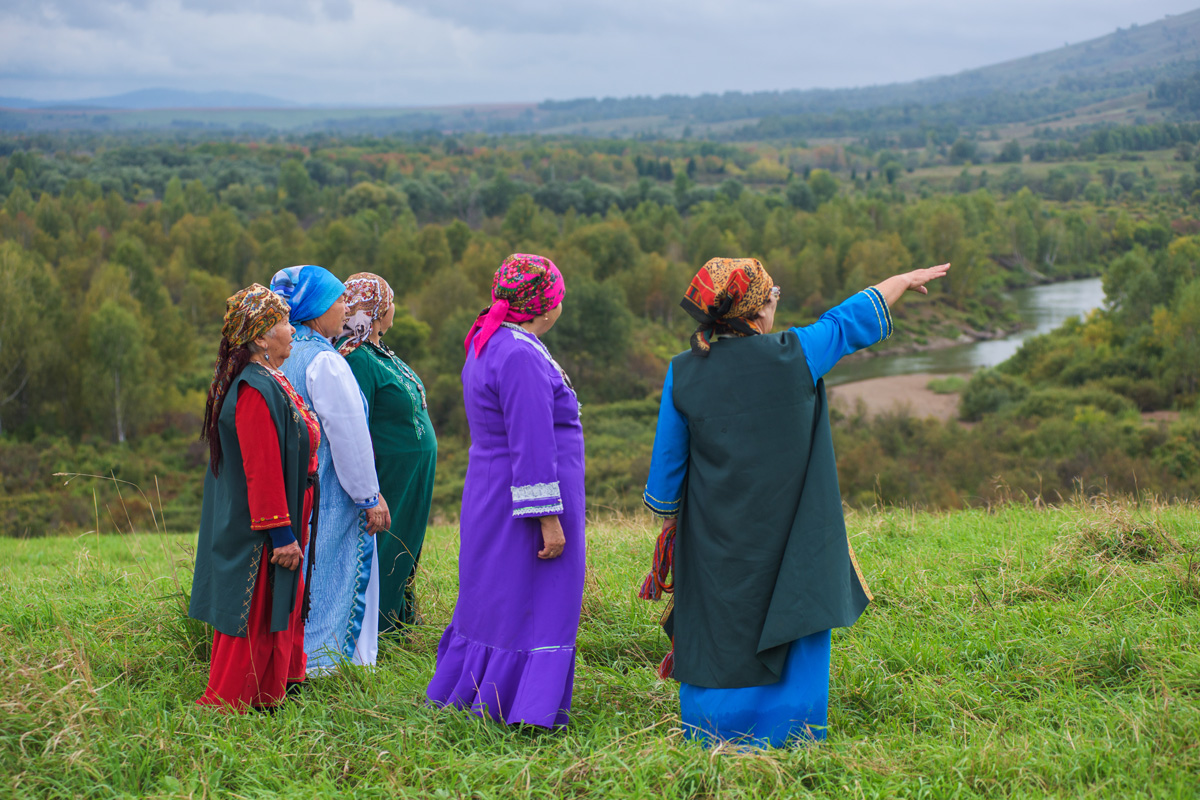 Photo credit: Anton Agarkov
Photo credit: Anton Agarkov
Soviet population censuses either set the Kumandins apart as a standalone nation or mixed them in ethnically with the Altaians. Linguists also failed to come to a unanimous opinion as to whether Kumandin was a language or a dialect. Some of them viewed Kumandins as an Altaian clan that became a separate nation so as to obtain certain privileges.
Kumandins have always identified themselves as a separate nation and in the early 20th century their population reached 6,334 persons. They had rituals, customs and traditions of their own. A guest was welcomed with the ritual of pipe smoking, while the deceased was laid to rest after the coffin was carried around the house three times and after being smoked with dry juniper, so as to close the gates of the lower world behind them.
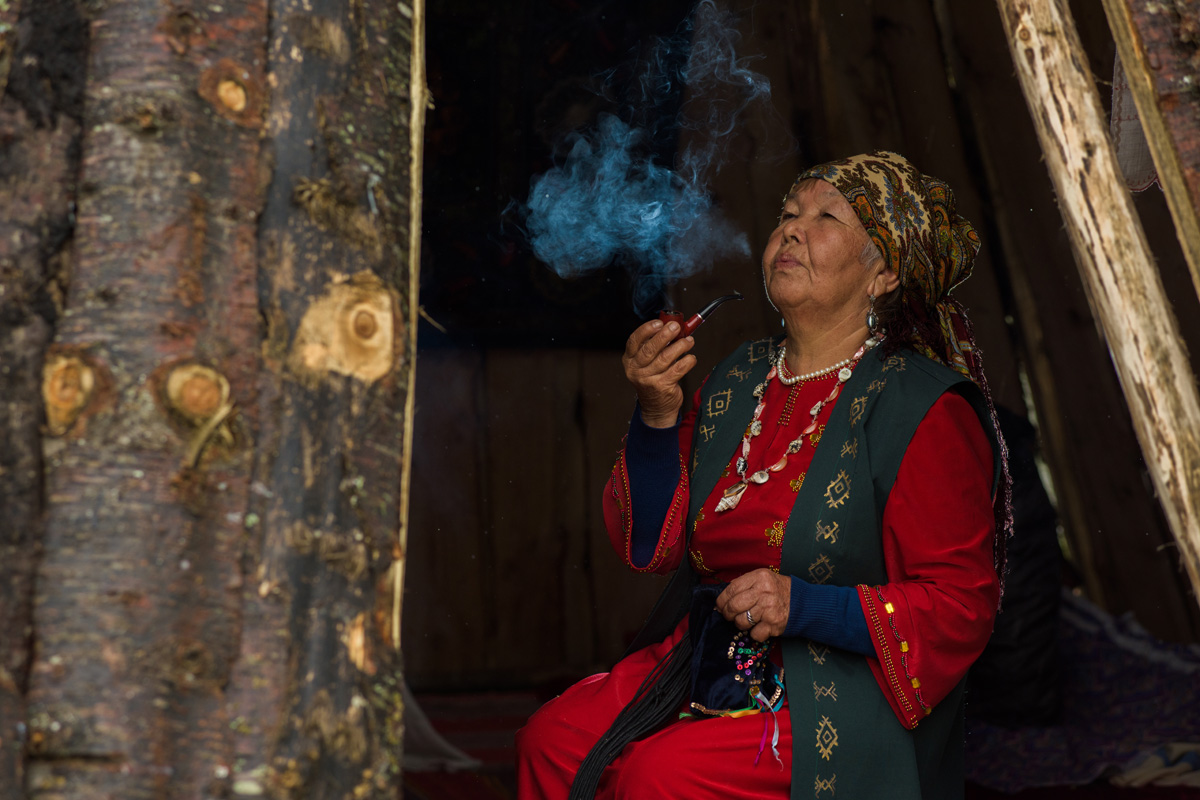 Photo credit: Anton Agarkov
Photo credit: Anton Agarkov
The Kumandins had their own religion and kama shamans, who would go to the higher and the lower worlds to speak with the spirits. During the Soviet period in the mid-20th century, incurably ill party leaders and heads of collective farms were treated not only by a doctor but also by a kama shaman. These treatments seemed to help some of them.
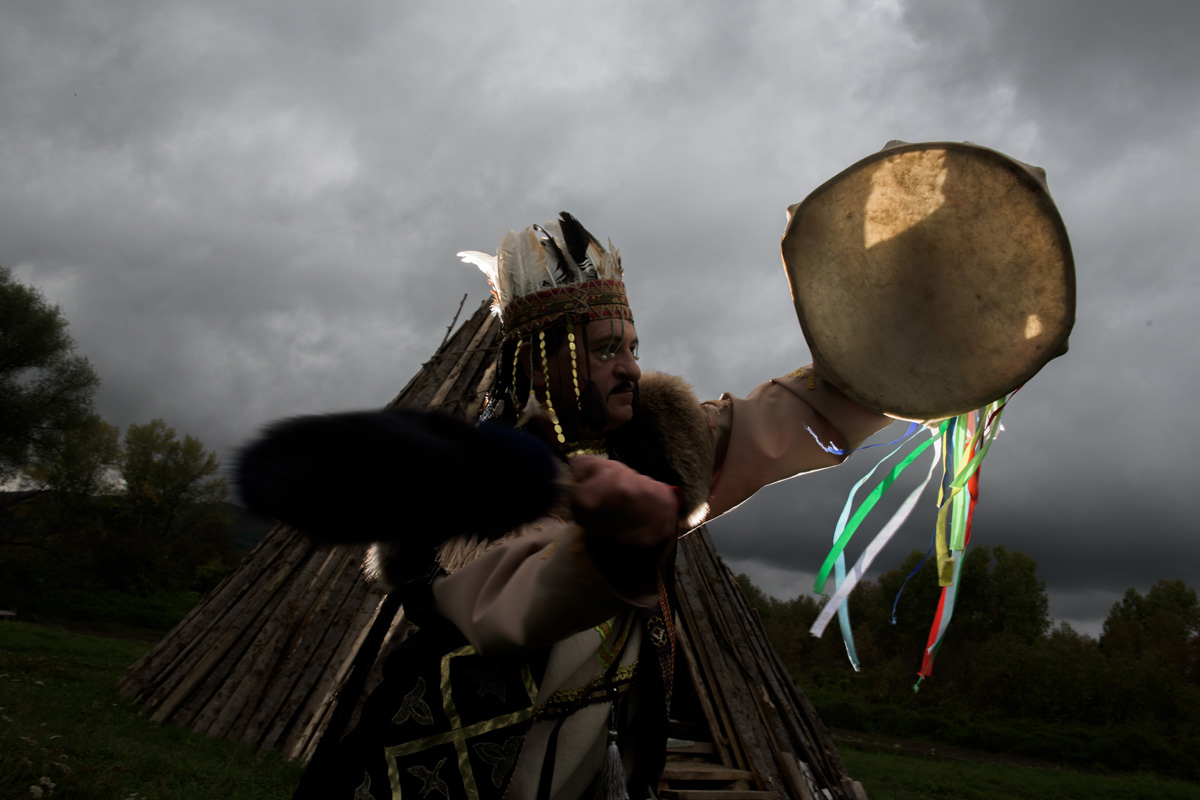 Photo credit: Anton Agarkov
Photo credit: Anton Agarkov
Today, the Kumandin population barely exceeds 3,000 and they are considered a small nation. To some their traditions are nothing but vague shadows in the memories of the old. "This is how my granny did it.... And that is how my grandpa did it..." people often say.
Once nomads, hunters and fishermen, at the beginning of the 21st century, Kumandins have largely abandoned hunting for vegetable gardens and they cannot catch more fish than that allowed by quotas. When I asked where I should go to experience the true Kumandin culture, Swan people told me: "About 70 years back in time."
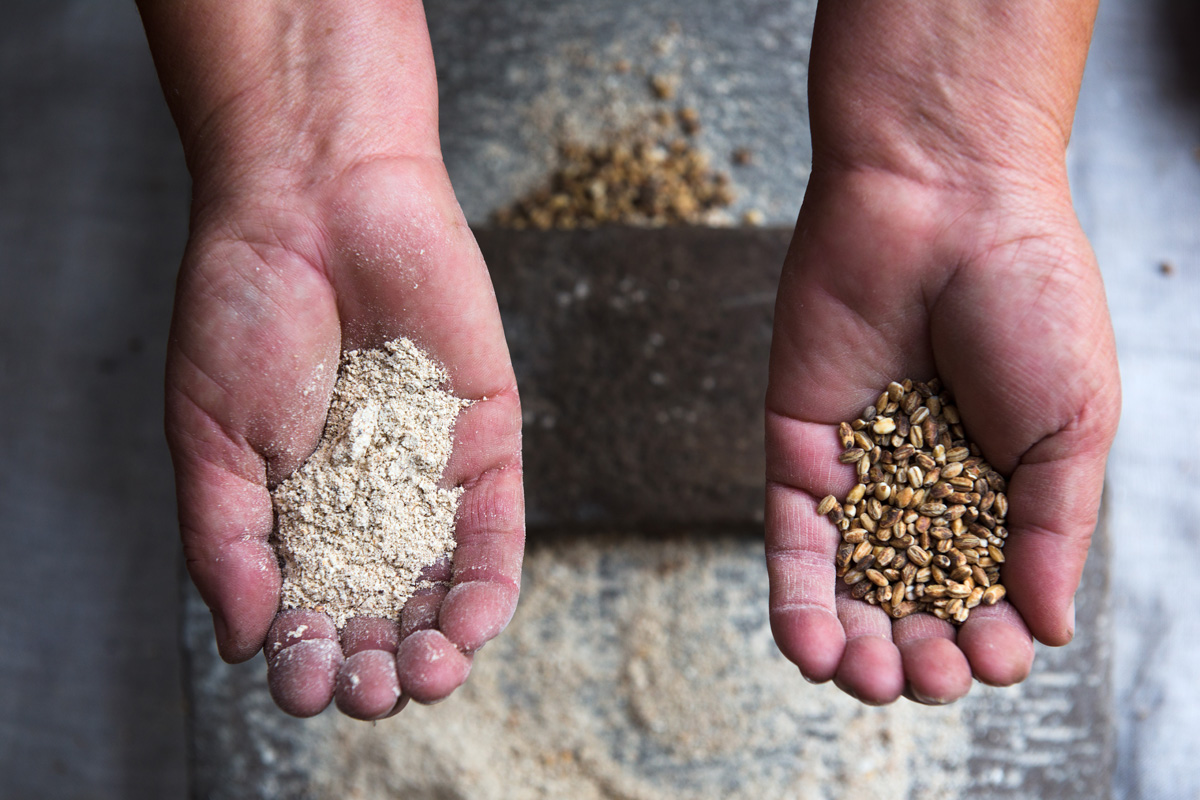 Photo credit: Anton Agarkov
Photo credit: Anton Agarkov
Their religion, which is inherent to the identity of any nation, was fought tooth and nail by the Soviet regime. It was during that era that their children's desire to speak their native language was suppressed. "You villager, you can't speak Russian," is how Kumandin children were mocked by their Russian peers. This is a major factor explaining why the nation was uprooted.
Ethnographic expeditions, which took national costumes, shaman attributes and traditional household items away from Kumandin villages, were also quite detrimental to the culture. Today, in order to get a glimpse of their national costumes, Kumandins have to fight their way to the Hermitage vault in St. Petersburg as access is permitted only to those that are engaged in the restoration of the culture of their people.
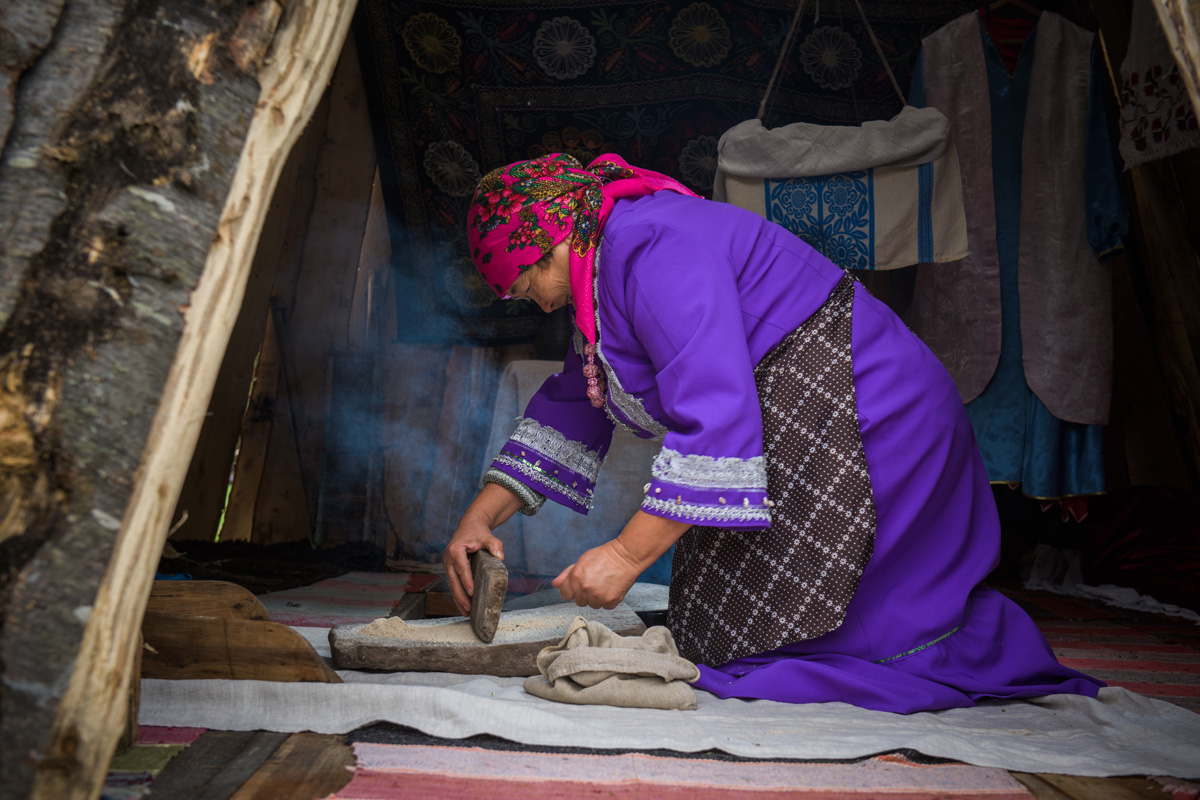 Photo credit: Anton Agarkov
Photo credit: Anton Agarkov
According to historians, Kumandins have never been hostile. When first Russian settlers arrived in the foothills of Altai, Kumandins gave them a warm welcome and taught how to survive in the taiga forest and live through the severe winter. In return, they were treated to aggression and violence. Instead of lashing back, Kumandins simply withdrew further into the woods. And then even further. "We had not become strong enough to become a sovereign nation," some Swan people today say.
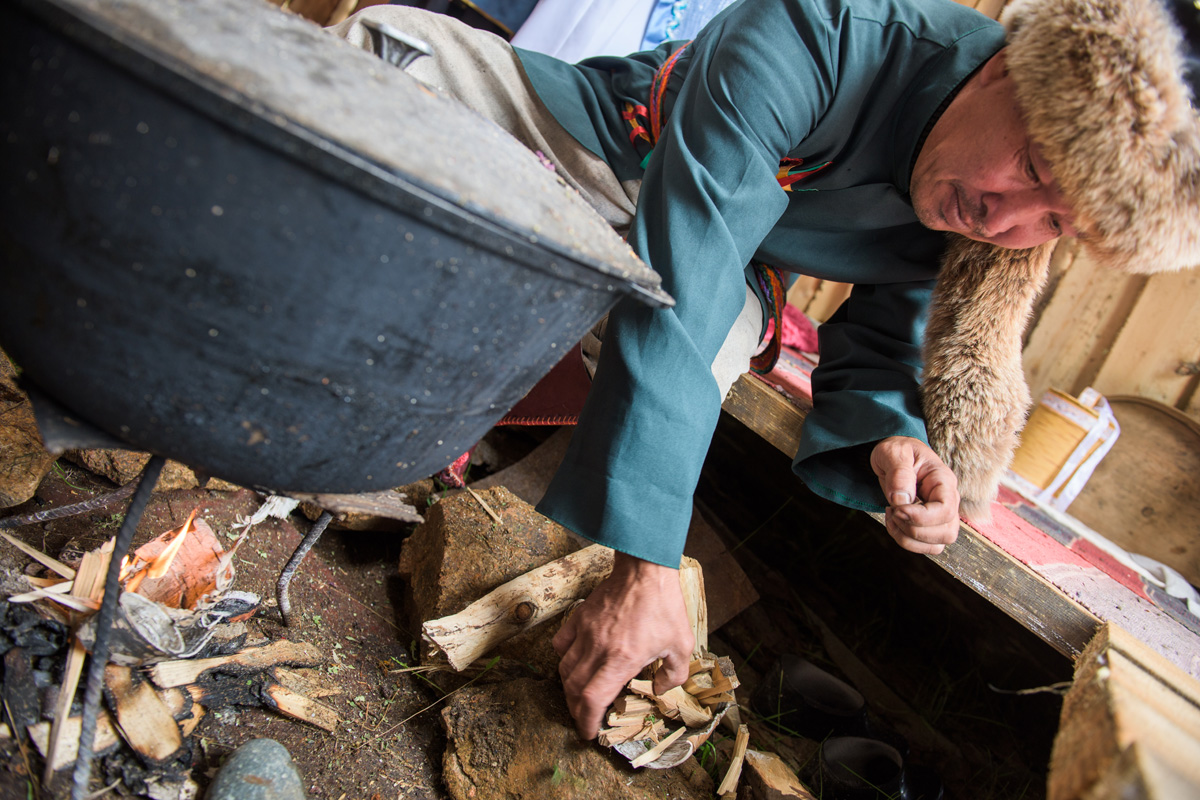 Photo credit: Anton Agarkov
Photo credit: Anton Agarkov
Having lost nearly everything and teetering on the very edge of cultural extinction, Kumandins hold on to their existence and future with a fierce determination. Having almost lost their language, they have begun reviving it. Ethnic club activists organize expeditions to remote villages to visit the elderly and record their memories and legends. They then teach Kumandin to children at the Sunday school.
Schoolchildren enjoy these classes and boast about belonging to an ancient nation to their peers: Being unique is cool these days. In the evening, elderly ladies gather in small cottages to cook special Kumandin dumplings with chopped potatoes and drink tea with talkan – roasted ground wheat – to discuss life and sing a heartfelt song. In Kumandin, of course.
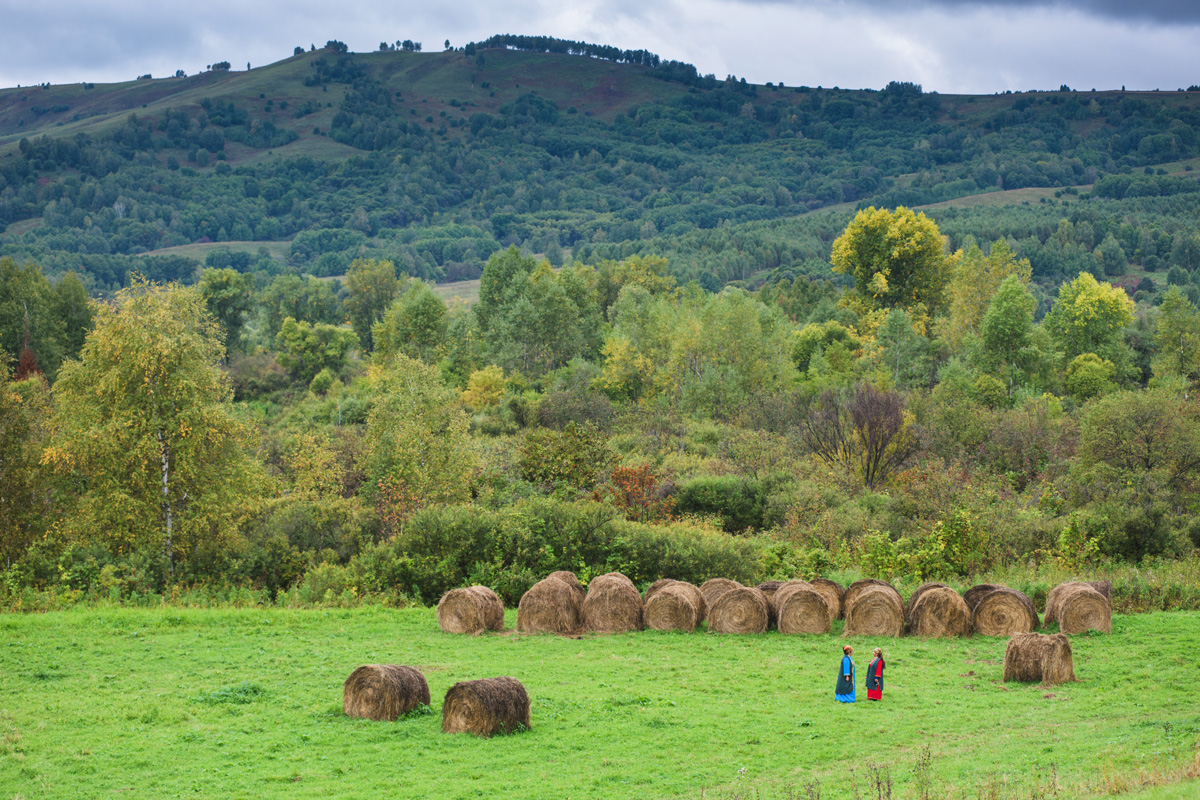 Photo credit: Anton Agarkov
Photo credit: Anton Agarkov
All rights reserved by Rossiyskaya Gazeta.
Subscribe
to our newsletter!
Get the week's best stories straight to your inbox